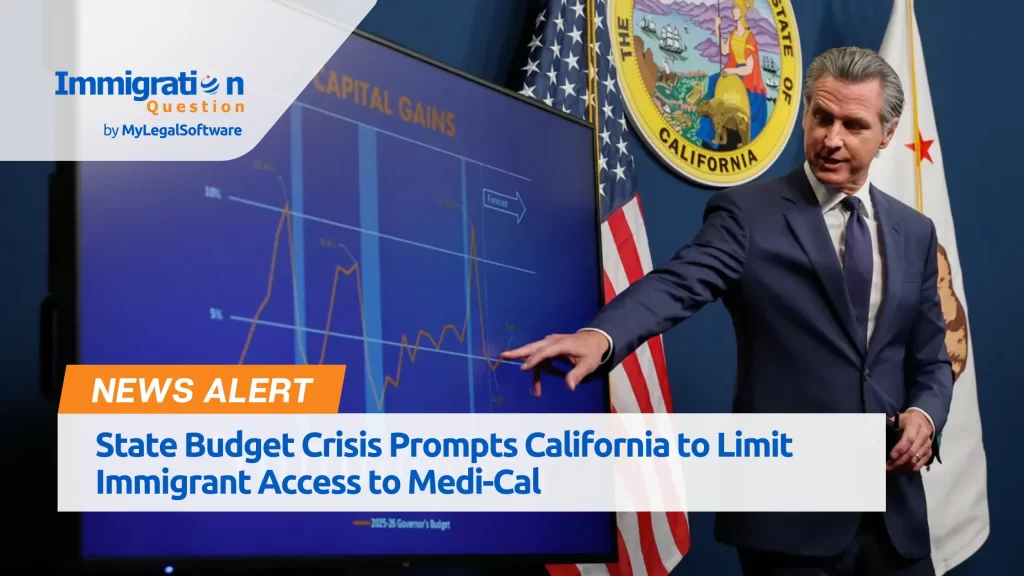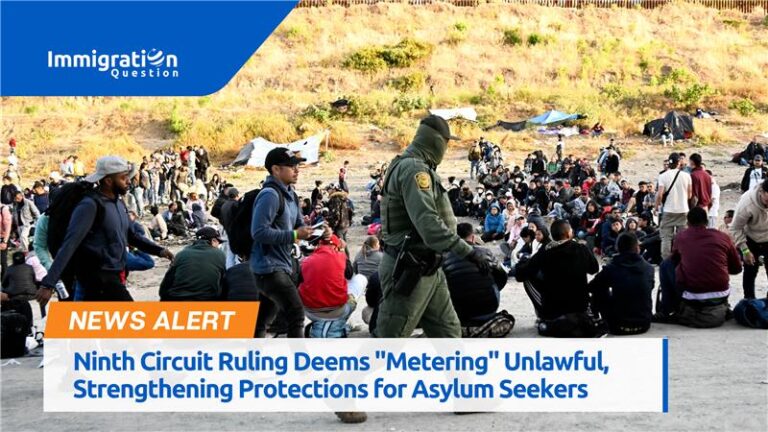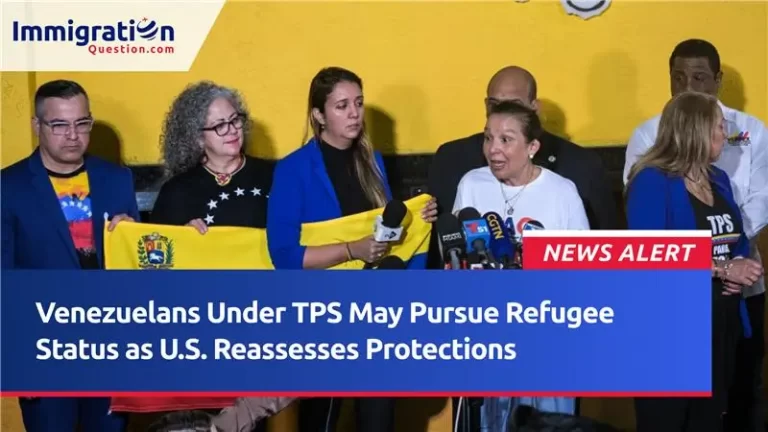To address a $12 billion deficit, California Governor Gavin Newsom plans to freeze new enrollment in Medi-Cal for undocumented immigrants. The move comes amid rising healthcare costs and economic uncertainty. While current beneficiaries remain covered, critics say the plan contradicts California’s commitment to immigrant inclusion.
A Budget Crunch Forces Difficult Trade-Offs
California is facing a $12 billion budget shortfall, prompting Governor Gavin Newsom to propose a freeze on enrollment in the state-funded Medi-Cal program for immigrants without legal status. As he unveiled a $322 billion spending plan for the next fiscal year, Newsom said the freeze is part of a broader effort to stabilize state finances amid ongoing economic challenges.
The state’s financial stress is tied to higher-than-expected Medicaid expenditures, a slowing economy, and volatility in capital gains tax revenue—an area on which California heavily relies. Newsom pointed to federal policies, including trade tariffs and national market instability, as contributing factors that could cost California $16 billion in revenue over the next few years.
Tensions Rise Over Cuts to Immigrant Programs
The proposed freeze represents a shift in California’s progressive stance on health care for undocumented immigrants. Last year, California became one of the first states to offer free health benefits to all low-income adults, regardless of immigration status. That expansion, however, cost the state $2.7 billion more than expected. Currently, over 1.6 million undocumented residents are enrolled in Medi-Cal.
Under the new plan, starting in 2026, no new undocumented adults can sign up for Medi-Cal. Those already enrolled will keep their benefits, and the policy won’t impact children. In 2027, immigrants with “unsatisfactory immigration status” will be required to pay a $100 monthly premium to stay in the program—aligning with what many pay through Covered California, the state’s health insurance marketplace.
Critics Respond
The decision has faced strong pushback from immigrant rights groups and lawmakers. Advocacy groups say the freeze goes against California’s commitment to helping marginalized communities. Although Newsom insists the changes are temporary and needed to balance the budget, critics argue that this goes against what the state stands for.
Opponents in the legislature, including Democratic state senators, have expressed frustration, stating that the plan rolls back vital coverage when many families are still recovering from pandemic-era economic hardships. They warn that any reduced access could further burden emergency care systems and increase overall healthcare costs in the long run.
Political Factors at Work
The budget cut is happening as Governor Newsom finishes his last term and thinks about his next steps in politics, maybe even nationally. Immigration is a big topic right now, and polls show that a lot of people back stricter immigration laws. With this budget adjustment, Newsom may attempt to strike a political balance between fiscal responsibility and social welfare – though some view the move as politically risky.
Meanwhile, Republican leaders are accusing the governor of deflecting blame. They claim the budget crisis stems from excessive government spending and mismanagement rather than external economic forces or federal policy decisions.
What’s Next?
As California lawmakers begin budget negotiations, immigrant advocates are expected to lobby hard against the freeze. The final budget must be signed by the end of June. Whether the enrollment freeze will remain part of the final agreement—and how long it will last—remains uncertain. The outcome could impact immigrant health access and the political legacy Newsom hopes to leave behind.
To stay up-to-date and informed, visit our news page, ask your immigration questions on Immigration Question, and get responses from licensed attorneys. For attorneys, streamline your case and lead management when you download the Immigration Question app.










